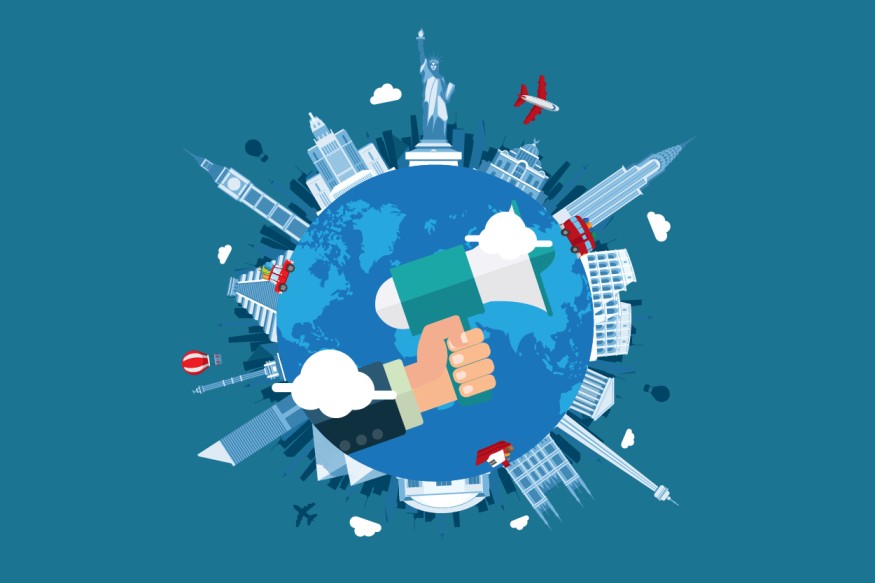What is International Relations?
International relations is a dynamic field that constantly evolves to reflect the changing dynamics of the global landscape. In recent years, several significant developments have shaped the world of international politics, including the emergence of new global actors, the role of international organizations, advancements in global diplomacy, and the ever-present issue of global security. This article will explore these latest developments, their impact on the international stage, and the future implications they hold.
International relations, also known as international affairs or global politics, is a field that focuses on the study of interactions among nations, governments, and other international actors. It examines the complex dynamics of power, diplomacy, cooperation, conflict, and decision-making on the global stage. International relations encompass a wide range of topics, including foreign policy, international law, global governance, and the role of international organizations.
At its core, international relations seeks to understand the complexities of the international system and how states and other actors navigate and shape it. It explores the factors that influence state behavior, such as national interests, power dynamics, ideology, culture, and economic interdependence. The field also analyzes the processes of negotiation, diplomacy, and conflict resolution that occur between nations.
The Importance of International Relations
International relations play a crucial role in shaping the world we live in. It helps us understand the causes and consequences of global events, ranging from economic crises and armed conflicts to international agreements and cooperation. By studying international relations, scholars, policymakers, and diplomats gain insights into the motivations and actions of states, enabling them to develop strategies and policies that promote stability, peace, and prosperity.
In an increasingly interconnected world, where advancements in technology and transportation have made distances shorter, the interactions between nations have become more frequent and complex. Understanding international relations is essential for addressing global challenges that transcend national borders, such as climate change, terrorism, pandemics, and economic inequality. It provides a framework for analyzing the impact of globalization and the interplay between domestic and international politics.
The Rise of New Global Actors
In recent years, there has been a notable shift in the global power structure with the emergence of new global actors. Traditional powers such as the United States, China, and Russia still hold significant influence, but other nations are increasingly asserting themselves on the international stage. Countries like India, Brazil, and South Africa have gained prominence in global affairs, forming alliances and shaping policies that reflect their growing economic and International political clout.
The Role of International Organizations
International organizations play a significant role in shaping the dynamics of global politics and promoting cooperation among nations. As the world becomes increasingly interconnected, these organizations provide platforms for dialogue, coordination, and decision-making on a wide range of global issues. In this article, we will explore the role of international organizations and their impact on international relations. International organizations, also known as intergovernmental organizations (IGOs), are entities created by states to facilitate cooperation and address common challenges at the global level. These organizations serve as forums for member states to engage in diplomatic negotiations, establish rules and norms, and coordinate efforts to achieve shared objectives.
What are International Organizations?
International organizations are composed of member states that voluntarily join and contribute to their functioning. These organizations operate based on agreements and charters that outline their purposes, structures, and decision-making processes. They can focus on a broad range of issues, including security, economics, human rights, health, and the environment.
Objectives and Functions of International Organizations
The objectives of international organizations vary depending on their specific mandates. However, common goals include promoting peace, fostering economic development, protecting human rights, addressing global challenges, and facilitating cooperation among member states. To achieve these objectives, international organizations perform various functions, including:
Negotiation and Diplomacy: International organizations provide platforms for diplomatic negotiations and dialogue among member states, aiming to resolve conflicts, negotiate agreements, and establish international norms.
Coordination and Cooperation: These organizations facilitate coordination and cooperation among member states by promoting information sharing, joint projects, and collective action on common issues.
Standard Setting and Regulation: International organizations develop standards, guidelines, and regulations to address global challenges and establish rules for interactions between states.
Monitoring and Compliance: Many international organizations monitor compliance with agreed-upon rules and standards, ensuring accountability among member states.
Types of International Organizations
International organizations can be categorized into several types based on their membership, geographic scope, and areas of focus. Some common types include:
Global Organizations: These organizations have a worldwide membership and address a broad range of global issues. Examples include the United Nations (UN), World Health Organization (WHO), and World Trade Organization (WTO).
Regional Organizations: Regional organizations focus on specific geographic regions and promote cooperation among member states in that region. Examples include the European Union (EU), African Union (AU), and Association of Southeast Asian Nations (ASEAN).
Issue-Specific Organizations: These organizations concentrate on specific areas or issues, such as the International Atomic Energy Agency (IAEA) for nuclear energy and the International Labor Organization (ILO) for labor standards.
International organizations play a vital role in international relations by facilitating cooperation, promoting dialogue, addressing global challenges, and establishing norms and standards. They provide platforms for member states to negotiate, collaborate, and work towards shared objectives. While challenges and criticisms exist, these organizations remain crucial in fostering stability, peace, and global governance in an increasingly interconnected world. Their role will continue to evolve as new global challenges emerge and the international community adapts to address them effectively.
Advancements in Global Diplomacy
Global Diplomacy remains an essential tool for managing international relations. In the digital age, advancements in technology and communication have transformed the way diplomatic efforts are conducted. Digital diplomacy, also known as e-diplomacy, allows for real-time communication, virtual summits, and diplomatic negotiations across borders. Social media platforms have also become a significant tool for public diplomacy, allowing governments and diplomats to engage with global audiences and shape public opinion.
Ensuring Global Security
Global security continues to be a pressing concern in international relations. While traditional security threats such as armed conflict and terrorism persist, new challenges have emerged, including cybersecurity, pandemics, and climate change. The interconnected nature of the world requires collective action and cooperation to address these challenges effectively. International cooperation through agreements, treaties, and collaborative efforts is crucial in maintaining global security and stability.










 English (US) ·
English (US) ·